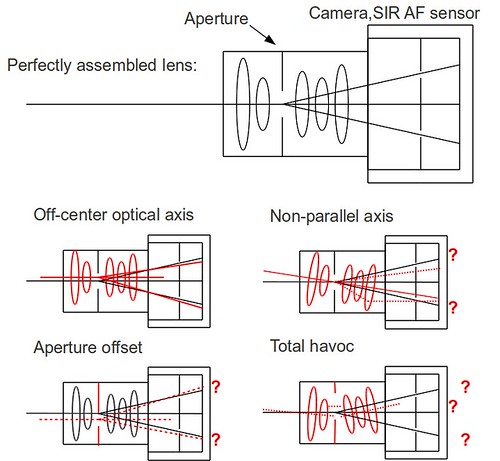 |
| 3 Likes | Search this Thread |
| 08-20-2011, 09:13 PM | #1 |
| Why Autofocus Adjust? | |
| 08-21-2011, 08:14 AM | #5 |
| 08-21-2011, 03:54 PM | #6 |
| Last edited by Marc Sabatella; 08-22-2011 at 03:30 PM. | |
| 08-21-2011, 04:26 PM | #7 |
| 08-21-2011, 11:58 PM | #8 |
| Last edited by ytterbium; 08-22-2011 at 11:40 AM. | |
| 08-22-2011, 08:07 AM | #9 |
| 08-22-2011, 11:30 AM | #10 |
| Last edited by ytterbium; 08-22-2011 at 11:45 AM. | |
| 08-22-2011, 03:34 PM | #12 |
| 08-24-2011, 09:03 AM | #14 |
 |
| Bookmarks |
| Tags - Make this thread easier to find by adding keywords to it! |
| camera, pentax help, photography |
 Similar Threads
Similar Threads | ||||
| Thread | Thread Starter | Forum | Replies | Last Post |
| K-x and AF adjust??? | axl | Pentax DSLR Discussion | 3 | 06-08-2010 02:14 PM |
| What does AF adjustment adjust anyway? | G_Money | Pentax DSLR Discussion | 6 | 05-08-2010 05:45 PM |
| K7 focus adjust | Workingdog | Pentax SLR Lens Discussion | 3 | 12-20-2009 01:01 PM |
| Help! Autofocus switch stuck on AF.S and will not autofocus! | pauldiebel | Pentax DSLR Discussion | 3 | 09-19-2009 08:59 PM |
| For Sale - Sold: FS: Autofocus film cameras and autofocus lenses | Not Registered | Sold Items | 15 | 03-17-2008 07:08 AM |













 Post #3 by builttospill
Post #3 by builttospill








